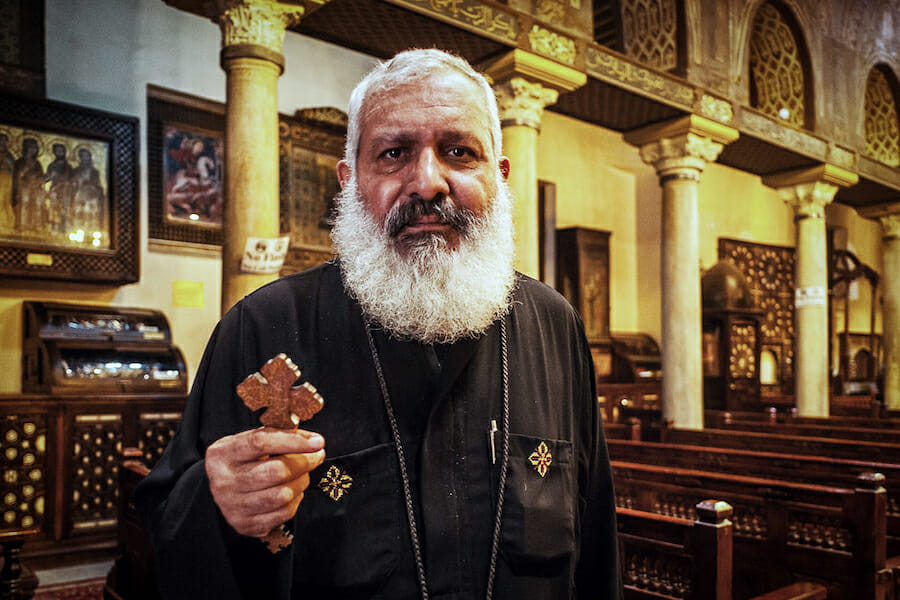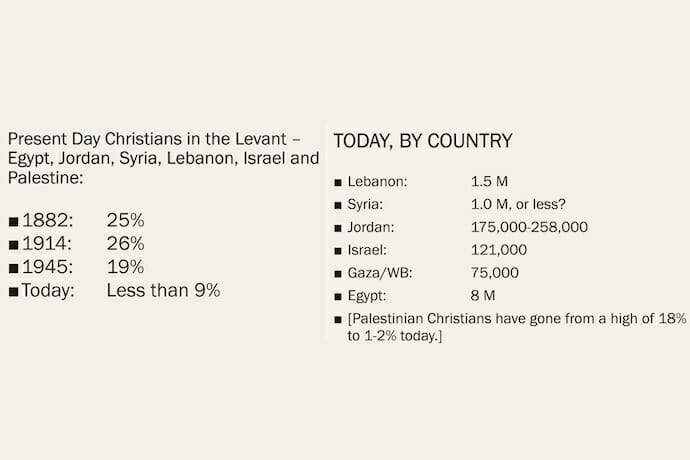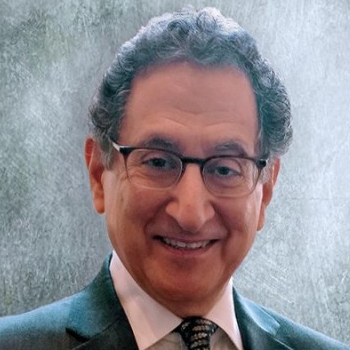
Culture
What is Coming for Christians and other Minorities in Lebanon and the Levant?
Ambassador Ed Gabriel (ret), President and CEO of the American Task Force on Lebanon (ATFL), recently gave his annual presentation on the Middle East to an audience at Christ Church, an Episcopal Church in Easton, MD. For this year’s topic, he chose to speak about Christians in the Middle East. I spoke with the Ambassador about his presentation and why he chose to focus on the Christian populations when so many other topics were in the news such as the fate of Syrian refugees, the uncertainty of US policy in the region, instability as a result of weak economies and institutions, tensions with Iran and between Iran and many of the Gulf Arab states, and others.
He said that he wanted his audience to understand that the continued decline of Christians, who have historically played a key role in the multicultural richness of the region, is emblematic of the need to take action to protect and enable all minorities to co-exist in dignity. Without a rigorous intervention, the Levant will lose its identity as a mosaic of cultures, religions, traditions, and ethnic groups. Given current efforts to pass a Congressional resolution condemning the Armenian genocide in Ottoman Turkey, it is appropriate to remember in some way that Christianity began in the Holy Land and the Levant is home to the world’s oldest churches and communities.
The table shows the decline of Christian populations during the last century. The loss has been accelerated by the rise of ISIS and al-Qaeda in Iraq and Syria and by economic and social challenges in Lebanon, Palestine, and Jordan. Once, they were vital to the region’s commerce, industry, and economic development, and made valuable contributions in education, health, public administration, and social services. Today, through institutions such as the American Universities in Cairo and Beirut, and NGOs including ANERA and AMIDEAST, CNEWA and CRS, and important networks of K-12 schools, vital work across all segments of society continues despite social and economic instability and growing pressure from extremists.
 When asked about what the status of Christian and other minorities might be in 10 years, Gabriel was not optimistic. He believes that the increase in political tensions within countries will put pressure on Christians and others to choose sides, which has an impact on emigration, especially for young people anxious to get an education and enter the job market. With majority populations in the Levant under the age of 35, slow growth rates, inadequate public education, and the overall lack of political stability in the region, it is difficult for youth to imagine a future in their home countries. More than 70% of them believe that they will have to leave in order to find adequate employment – not an optimistic assessment.
When asked about what the status of Christian and other minorities might be in 10 years, Gabriel was not optimistic. He believes that the increase in political tensions within countries will put pressure on Christians and others to choose sides, which has an impact on emigration, especially for young people anxious to get an education and enter the job market. With majority populations in the Levant under the age of 35, slow growth rates, inadequate public education, and the overall lack of political stability in the region, it is difficult for youth to imagine a future in their home countries. More than 70% of them believe that they will have to leave in order to find adequate employment – not an optimistic assessment.
So what can be done to maintain safety and dignity for Christians and other minorities in the Levant, and provide opportunities for futures that are less bleak while maintaining the multicultural richness that has made the region home for so many?
I put this question to Amb. Gabriel by asking what the US can do to support and encourage coexistence in Lebanon and the broader Levant. He proposed several actions and had very specific recommendations.
First of all, the US cannot be passive in light of the continued loss of historic communities in the region through persecution, emigration, and loss of opportunities. For example, the US can encourage Lebanon to seriously address badly needed reforms, as called for by the CEDRE donors, and, as they are adopted, promote Lebanon as a viable destination for US investments in the region. In this way, jobs will be created, youth will be able to stay in the country, make a contribution, and build lives that sustain stability and the multicultural character of the country. Elsewhere in the Levant, and particularly in Iraq, Syria, and Palestine, if the situation doesn’t improve, it will be critical to grant religious minorities fleeing persecution priority status so they can apply directly to the US resettlement programs.
He went on to note that it is key to “insist in every aspect of diplomacy concerning Syria’s future that Christians, other minorities, and all Syrian people enjoy security, equality of citizenship, and the ability to practice their faith openly and in peace. Also, work with Syria’s religious minorities and other key elements of civil society to develop a set of principles necessary for the achievement of a new Syria that guarantees not only the survival and security of Christians and other religious minorities.”
Focusing on political, social, and economic inclusiveness will break down barriers among the various groups, provide a sense of investment in the future of their societies, and provide a degree of stability that has been missing from the region for far too long.

